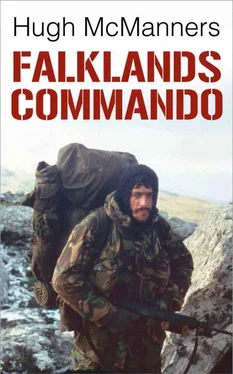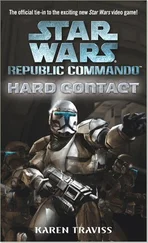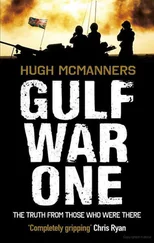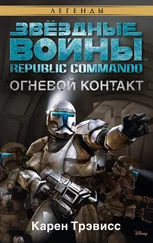Hugh McManners - Falklands Commando
Здесь есть возможность читать онлайн «Hugh McManners - Falklands Commando» весь текст электронной книги совершенно бесплатно (целиком полную версию без сокращений). В некоторых случаях можно слушать аудио, скачать через торрент в формате fb2 и присутствует краткое содержание. Город: London, Год выпуска: 2014, ISBN: 2014, Издательство: Nightstrike Publishing, Жанр: nonf_military, Биографии и Мемуары, на английском языке. Описание произведения, (предисловие) а так же отзывы посетителей доступны на портале библиотеки ЛибКат.
- Название:Falklands Commando
- Автор:
- Издательство:Nightstrike Publishing
- Жанр:
- Год:2014
- Город:London
- ISBN:978-0-992-81540-0
- Рейтинг книги:4 / 5. Голосов: 1
-
Избранное:Добавить в избранное
- Отзывы:
-
Ваша оценка:
- 80
- 1
- 2
- 3
- 4
- 5
Falklands Commando: краткое содержание, описание и аннотация
Предлагаем к чтению аннотацию, описание, краткое содержание или предисловие (зависит от того, что написал сам автор книги «Falklands Commando»). Если вы не нашли необходимую информацию о книге — напишите в комментариях, мы постараемся отыскать её.
Falklands Commando — читать онлайн бесплатно полную книгу (весь текст) целиком
Ниже представлен текст книги, разбитый по страницам. Система сохранения места последней прочитанной страницы, позволяет с удобством читать онлайн бесплатно книгу «Falklands Commando», без необходимости каждый раз заново искать на чём Вы остановились. Поставьте закладку, и сможете в любой момент перейти на страницу, на которой закончили чтение.
Интервал:
Закладка:
Ordinary soldiers also suffer from this same paradox. ‘Fighters’ can seem over-keen on practising their military skills to be tolerated in peacetime units. Elite cadres like the British SAS attract men frustrated by the peacetime attitudes of their parent units. These men are often identified by their officers as being both particularly good at their jobs, and likely to perform well in combat. Nevertheless, in peacetime, other qualities are required to earn promotion – especially tact and diplomacy. In peacetime, these combat-capable individuals are often passed-over in favour of other more personable men.
Before he had experienced battle, Second World War infantry platoon commander Sydney Jary said he would have listed masculine qualities like aggression, physical stamina, a competitive nature and hunting instinct as the necessary qualities of a good soldier. But after fighting from 1944 until the end of the war, from Normandy into Germany, his list of good soldier qualities had changed radically:
“…sufferance, without which one could not survive. Secondly a quiet mind which enables the soldier to live in harmony with his fellows through all sorts of difficulty and dreadful conditions… there is simply no room for the assertive or acrimonious. Thirdly… a sense of the ridiculous, which helps the soldier surmount the unacceptable. Add to these physical fitness and professional competence and you have a soldier for all seasons. [19]
Given the choice between sportsmen and poets for a dangerous mission, Jary declares he ‘would unhesitatingly recruit from the latter’, men who in peacetime would probably not even have joined the army, let alone been considered for promotion.
The armed forces of many countries are an interesting reflection of the social structure of the rest of their societies. Each is organised according to the nature of the society that it serves and defends. Some armed forces epitomise the ideology of the governing class and its attempts to shape the social order: the erstwhile Soviet Union and China clearly so; and, more subtly, the English class system and the American egalitarian myth.
Through its regimental system, the British Army perpetuates an obsolescent dream of English upper-middle-class life. Technology and the need for intelligent, well-trained men in all ranks have largely eliminated this from the Royal Navy and the RAF. By contrast, the US Army’s classless officer corps selects its members from the same backgrounds as the men, but then has the problem of making them different enough from the other ranks to stand out as officers. The Israeli Defence Force avoids all these problems by selecting officers from the best NCOs.
Ironically, soldierly skill is not nearly so important for a British Army officer. In the conformist environment of a British officers’ mess, social standing can be more important, not only with other officers, but particularly with the other ranks. In Highland regiments, for example, many of the men prefer their officers to speak with upper-class English accents. In regiments like the Guards, the men like their officers to be ‘toffs’, partly because in the past they have often been absurdly brave and colourful – but more importantly, perhaps, because toffs are predictable. A public school education is the usual pre-requisite, conferring the accent and social habits, plus the connections. These days, private incomes are less common, although there are plenty who have no real need for their army pay, and a few who don’t bother drawing it.
The influence of class in the British Army is far stronger than in most other parts of British society, which keep mostly within their own class boundaries. Each regiment is a microcosm in which people of every social class work unusually closely together. Military rank is more important among the other ranks than between officers. For officers, status is much more a question of education and social class than of military rank. The noble lord who is only a lieutenant does not feel inferior to the majors. Because the smartest regiments take officers mainly from the upper classes, the regimental cap badge becomes an indication of the individual’s class – except in the unlikely event of a particular upper-class individual ‘slumming it’ in a lower-class regiment.
There are notable examples of upper-class chaps refusing to become officers, enjoying the camaraderie of the barrack block in preference to the regimentation of the Officers’ Mess. Most seem to leave the Army or get talked into becoming officers; before having to come to terms with the ultra-conformity of the Sergeants Mess.
In a staff headquarters, although officers from different regiments and corps work together, the horizontal social hierarchy (based firmly upon class and not rank) continues strongly, and can create pretension and occasional strife. Officers from the Ordnance, Engineers, Artillery and the ultra-technical Royal Electrical and Mechanical Engineers (REME) are often attached to smart regiments. Any one of these might drop aitches or hold his knife at table as if it was a pen. On peacetime exercises, social superiority and inferiority can adversely affect the integration of these vital specialists into the organisation. How words are pronounced can be as important as their meaning.
As an institution the British Army lives in the past – and not simply because of its traditions. Its isolation from the rest of society offers a purely social reason for it being so class-oriented. This isolation was particularly apparent in the British Army of the Rhine, and the time lag is significant, something in the order of a decade and more. Within the institution of the army, individuals behave, dress and think according to their own inclinations, but conform to the official, time-lagged, upper-class norm when required. A small number of officers and NCOs blot out their private persona, being and living exactly in the army’s image. As such officers achieve promotion, this will stand them in good stead. An even smaller number (less so in 2014 than in my day) are so pukka as to try to live as an officer might have done for example in India between the wars. They are regarded by most as eccentrics, but this does not harm their promotion prospects – rather the opposite.
English public schools epitomise the English class system, and are very important to the British Army. Lt Colonel Tim Spicer (Scots Guards, educated at Sherborne – a (fee-paying) public school):
“Public schools drum into their pupils the need to set a good example, and provide the means to becoming a good, overall sort of chap. The public-school boy tends to be naturally better at the sort of leadership required by the British Army because he has been practising it throughout his school life. Although other sorts of school might also provide individuals who happen to be good leaders, they do not give them the same tremendous advantage – and head start.”
Of course not all public-school boys do well in the army; some fail on entry, and others survive without really pulling their weight. The public-school boys who get to the top of the army usually have the added advantage of brain power, which adds up to being the best sort of officer leader.
By coming straight into the Army, a public-school boy moves from one institution to another, compounding the narrowness of his outlook. (This happens in other professions too, the law in particular.) Narrow-mindedness is inevitable, which in the Army (where the upper and lower classes of British society work together with unparalleled intimacy) could become an increasingly serious disadvantage. Lt Colonel Spicer:
“Eton College gives possibly the broadest approach to life and a better understanding of the outside world. Etonians do well in the Army, and in combat. Colonel ‘H’ Jones [the Commanding Officer of 2 Para in the Falklands War] went to Eton. Public school gives an advantage in the army because of a general inhibition [held by army officers] about those who went to other schools – that they might eat their peas with a knife or something.”
Читать дальшеИнтервал:
Закладка:
Похожие книги на «Falklands Commando»
Представляем Вашему вниманию похожие книги на «Falklands Commando» списком для выбора. Мы отобрали схожую по названию и смыслу литературу в надежде предоставить читателям больше вариантов отыскать новые, интересные, ещё непрочитанные произведения.
Обсуждение, отзывы о книге «Falklands Commando» и просто собственные мнения читателей. Оставьте ваши комментарии, напишите, что Вы думаете о произведении, его смысле или главных героях. Укажите что конкретно понравилось, а что нет, и почему Вы так считаете.












